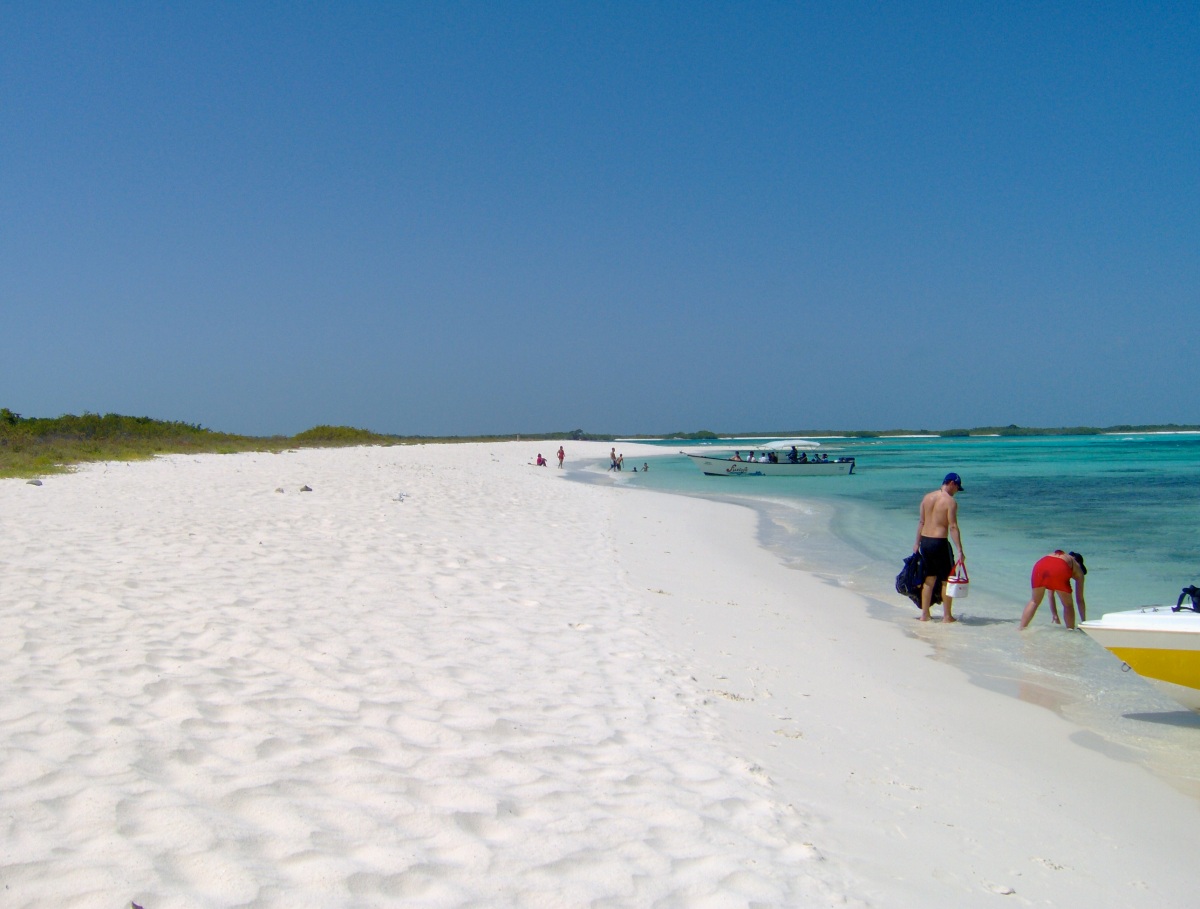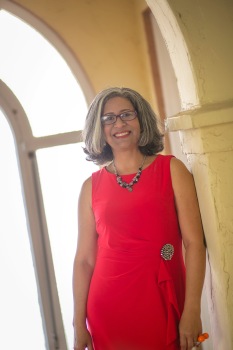
Parque Nacional Canaima, Venezuela
By Lisbeth Coiman
When people meet me, they immediately want to know where my accent is from. This question usually precedes one or all of the next topics: a.) Beauty queens, b.) Oil industry, or c.) The imperialism-communism dichotomy. I cringe at each.
The following are four easy instructions to talk to an immigrant from Venezuela, or from anywhere else, for that matter.
- Don’t use stereotypes.
“Venezuela? “That’s where all the beauty queens are from.” The permanent scar on the left side of my face should be a clear indicator that not everybody shares misogynistic ideals of beauty. This article in the Daily Mail exposes the dark side of the beauty industry in my beloved country. Not all Venezuelan women endorse beauty pageants like the Miss Universe.
- Don’t make embarrassing assumptions.
Recently, my own impertinence taught me not to ask a woman if she is pregnant unless I see her pushing an 8-pound baby between her legs. “You must have an oil well in your backyard, don’t you?” No. Actually, Venezuela’s oil industry is nationalized. To learn about this important factor in the global economy read about OPEC and it’s origins and here.
- Don’t proselytize or impose your ideology or religion.
“You know the World Bank is starving your country, right? It’s the imperialistic machinery at work.” There is nothing more imperialistic than having a righteous opinion about a foreign country you have never visited. Corruption like that of the megalomaniac, demagogue Chavez doesn’t have an equivalent in the civilized world, unless Donald Trump wins the elections. Then you’ll find out what it is like. Additionally, the ineptitude of the finger-appointed Chavez’ successor, Nicolas Maduro, has no rival.
If that’s the communism you admire, I invite you to move to that communist paradise and queue several times a week next to my 80-year old father for a ration of rice. During the 70s, Venezuela made the mistake of putting all the eggs in the oil industry basket. Now that the oil prices have touched rock bottom, and that Chavez’s demagogue revolution emptied the nation’s coffers, the country is starving. The World Bank and the so called Empire don’t have anything to do with it. The country is sitting on oil, but it can’t eat oil.
- To avoid embarrassing displays of ignorance, learn about Venezuela through the individual in front of you.
Ask questions such as: “What do you remember most about your country? What is the landscape like? What is the typical food? What kind of music did you enjoy when growing up? What traditions are typical of your country? What games did you play when you were a child? What is the political system? What is the religion?
Then, listen to me speak proudly about the country of my youth, the landscape I see under my eyelids when I close my eyes at night. Listen and get to know that I miss the smell of passion fruit the most, and learn that we wear yellow panties on New Year’s Eve for good luck, and that we throw water at each other during Carnival, the equivalent of your Mardi Gras. Maybe then, you find a friend with a beautiful accent.
Oakland, June 25, 2016

Parque Nacional Los Roques, Venezuela.
Spanish version follows.
Cuando la gente me conoce, inmediatamente quieren saber de donde es mi acento. Esta pregunta normalmente precede a uno o todos de los siguientes temas: a.) Reinas de belleza, b.) la industria petrolera, c.) la dicotomía imperialismo-comunismo. Todos me crispan los pelos.
Las siguientes son cuatro instrucciones fáciles para hablar con un inmigrante de Venezuela, o de cualquier parte.
- No use estereotipos.
“¿Venezuela? De allí es donde vienen todas las reinas de belleza, verdad?” La cicatriz en el lado izquierdo de mi cara debería ser un indicador claro que no todos compartimos ideales de belleza misóginos. Este artículo en el Daily Mail expone el lado oscuro de la industria de belleza en mi querido país. No todas las mujeres venezolanas endosan los concursos de belleza como el Miss Universo.
- No asumas nada. Es vergonzoso.
Recientemente, por culpa de mi propia impertinencia aprendí a no preguntarle a una mujer si esta embarazada, a menos que la vea pujando un bebe de cuatro kilos. “Tú debes tener un pozo de petróleo en tu patio.” No. Realmente, la industria petrolera venezolana está nacionalizada. Si quieres aprender sobre este factor importante en la economía mundial, lee sobre la OPEP y sus orígenes aquí, y aquí.
- No hagas proselitismo o impongas tu ideología o religión.
“Sabes que el Banco Mundial está matando de hambre a tu país? Ese es el producto de la maquinaria imperialista.” No hay nada más imperialista que una mojigatería sobre un país que no se conoce. La corrupción del demagogo y megalómano Chavez no tiene equivalente en el mundo civilizado, a menos que Donald Trump gane las elecciones. Entonces sabrán. Además, no tiene rival la ineptitud de Nicolás Maduro, el sucesor que Chavez nombró a dedillo.
Si ese es el comunismo admirado, se les invita a mudarse a ese paraíso comunista y hacer cola varias veces a la semana junto a mi padre de 80 años para recibir una ración de arroz. Durante los años 70, Venezuela cometió el error de apostarle todo a la cesta petrolera. Ahora cuando los precios del petróleo han caído hasta tocar fondo, y ahora cuando la revolución del demagogo Chavez ha vaciado los cofres de la nación, el país está pasando hambre. El Banco Mundial y el llamado imperio no tienen nada que ver en esto. El país nada en petróleo, pero no se puede comer el petróleo.
- Para evitar despliegues vergonzosos de ignorancia, aprenda sobre Venezuela a través del individuo delante suyo.
Haga preguntas como: “¿Qué es lo que más recuerda de su país?” ¿Cómo es el paisaje? ¿Cuál es la comida típica? ¿Qué clase de música disfrutabas cuando eras niña? ¿Cuáles son las tradiciones típicas de tu país? ¿Qué juegos jugabas cuando eras niña? ¿Cuál es el sistema político? ¿Cuál es la religión?”
Entonces, escúchame hablar con orgullo del país de mi juventud, el paisaje que veo bajo mis párpados cuando cierro mis ojos por las noches. Escucha y aprende que lo que más extraño es el olor de la parchita, y que las venezolanas nos ponemos pantaletas amarillas en Año Nuevo para buscar buena suerte, y que nos echamos agua unos a otros durante los carnavales, el equivalente de tu Mardi Gras. Entonces quizás hasta encuentres una amiga con un acento hermoso.
En Oakland, el 25 de Junio del 2016.

Lisbeth Coiman is a bilingual writer standing (unbalanced) on a blurred line between fiction and memoir. She has wandered the immigration path from Venezuela to Canada, to the US, and now lives in Oakland. Her upcoming memoir, The Shattered Mirror, celebrates friendship among women and draws attention on child abuse and mental illness. She also writes short fiction and poetry, and is the curator of Zocalo Spits: Arts in the Dro, a reading series meeting on Second Saturdays in San Leandro, CA.







Hello!
We have a mutual friend Omy. She told me to get in touch with you regarding food insecurity in Venezuela. If you are able to contact me back it would be greatly appreciated.
Thank you for your time.
Lindsey
Yes. I will contact you at the email address provided.